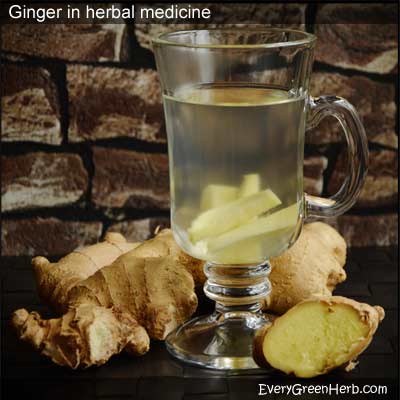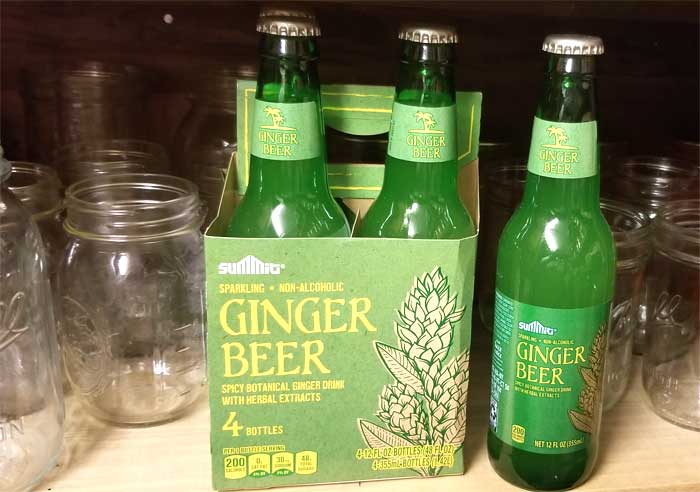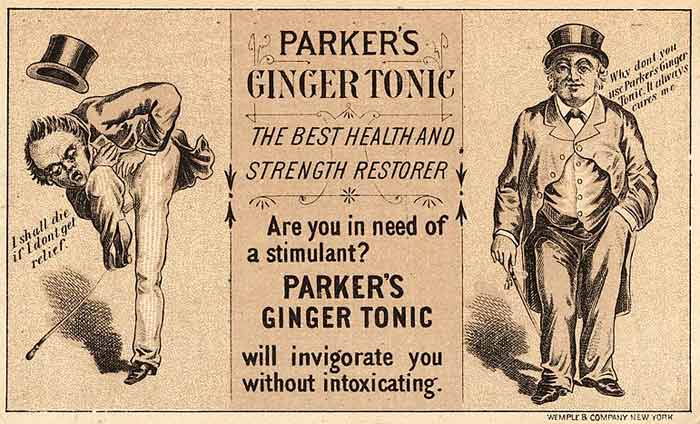Ginger as a natural remedy in herbal medicine

Ginger (Zingiber officinaleis) tea stops nausea naturally, stimulates appetite, and lowers cholesterol. It is warming, increases blood flow, and helps cleanse the digestive tract.
Ginger is useful in the treatment of many conditions including sinus congestion, sore throats, edema, digestive problems, nausea, motion sickness, arthritis, headaches, and coughs.
As a herbal remedy, ginger is often used to break up phlegm, reduce fever and chills, balance cholesterol, dry up runny noses, prevent nausea, stimulate circulation, ease muscular pain, increase bile secretions, promote sweating, stop diarrhea, ease abdominal bloating, regulate menstrual periods, and soothe morning sickness during pregnancy.
Ginger is not only a useful medicinal herb, it also tastes great. If you like spicy, warm flavors in your food, stock up your pantry with ginger.

Hot ginger tea helps heal sore throats and coughs due to colds.
Ginger tea is warming and delicious, especially with lemon and honey. As it steeps, aromatic fragrance fills the kitchen, bringing healing relief to sinus congestion and respiratory problems.
It is one of my favorite alkalizing and anti-inflammatory herbal teas.
Ginger water is a refreshing and healthy drink.
Cut or grate ginger just like when making tea. Simmer in hot water for fifteen minutes then cool. Pour over ice for a refreshing herbal drink. Add lemon, lime, or pineapple juice for different flavors.
Ginger water, like ginger tea, helps regulate blood pressure, thins the blood, reduces bad cholesterol levels, reduces triglyceride levels, and helps reduce the risk of heart disease naturally. Drinking ginger water also fights infection and improves digestion.
Here is a short video I made about my love for ginger.
Ginger is an appetite stimulant.
Ginger is an appetite stimulant and is often used in cooking. It is a delicious addition to sweet and savory recipes.
Ginger has a warm, fresh taste that is peppery and spicy.

Gingerbread gets its distinctive flavor from ground ginger.
Many oriental dishes use pieces of the sliced root like a vegetable. Ginger pairs well with many different types of seafood, pork, chicken, and fruits.
Ginger is often used with nutmeg, cinnamon, allspice, and other pumpkin pie spices.
Ginger is available year round in grocery stores.
When buying fresh ginger, look for a root with smooth, firm skin, with no wrinkles, and a spicy aroma.
Store fresh ginger in a tightly wrapped waxed-paper in the refrigerator. Peel and grate it before use. Add ginger to any dish for extra flavor.
If fresh ginger is not available, you can use dried ginger in powdered form.
A nutritional flavoring
Fresh ginger root contains fiber, carbohydrates, vitamin C, vitamin B6, potassium, iron, and other vitamins and minerals.
Fresh or dried ginger can be used to flavor foods and drinks instead of adding sugar. Ginger is a healthy choice!

The scent of ginger is uplifting and comforting.
Ginger is part of the Zingiberaceae family, alongside cardamom and turmeric. The herb is originally from India.
Ginger is used fresh, dried, in powdered from, and as an essential oil in aromatherapy.
Ginger is a natural tonic.
Ginger is known to stimulate kidney activity, which helps remove toxic wastes from the body.
Ginger improves liver function naturally by converting cholesterol into bile acids. Like garlic, ginger can help make blood platelets less sticky.
Use diluted ginger essential oil on the body.
Ginger essential oil is a good remedy to use on bruises and carbuncles due to its antiseptic properties. Make a healing herbal ointment with beeswax, almond oil, ginger essential oil, and a few drops of tea tree oil for longer shelf life.
Ginger essential oil makes an excellent addition to massage oil, especially when treating arthritis and muscle pain as it greatly increases blood flow to the area. It is very warming. For best results, combine with juniper essential oil and a carrier such as almond or olive oil.
Use ginger and ginger essential oil for motion sickness.
Ginger is the perfect herbal remedy for motion sickness and works better than any over-the-counter product. Just sniff the oil until nausea subsides.
Ginger stops morning sickness caused by pregnancy and motion sickness from riding on curvy roads. Drink ginger tea or chew crystallized pieces before and during trips. It can also stop sea-sickness.
Ginger during pregnancy
Add ground cinnamon and honey to ginger tea for a delicious beverage that is safe for occasional use during pregnancy and while nursing. Ginger tea can be used right after childbirth to promote the production of milk. Ginger also helps boost both mother and baby's immunity.
Ginger relieves bloating and gas.
As a natural remedy for menstrual problems and cramps, ginger tea may be used in a compress and applied directly to the abdomen. This herbal treatment also helps relieve bloating and gas.
Ginger is not recommended in the treatment of ulcers, but may help prevent them.
Ginger is an aromatic bitter that stimulates digestion, helps keep intestinal muscles toned, and acts as a healing colon tonic.
The use of ginger eases rough fiber and toxic waste materials through the digestive tract, lessoning irritation to the intestinal walls.
If you have been diagnosed with an ulcer, ginger may irritate it so refrain for taking it in large doses.
Ginger has a long history in herbal medicine.
Traditional Chinese medicine has recommended ginger for over 2,500 years to treat abdominal bloating, coughing, vomiting, diarrhea, and arthritis. The Chinese people use ginger to warm the stomach, dispel chills, and reduce the toxicity of some other medicinal treatments.
Ginger was was exported from India to the Roman Empire over 2000 years ago, where it was highly valued for its medicinal properties.

Ginger and scientific research
According to scientific studies, ginger has at least 115 active compounds and antioxidants that may be useful in the treatment of everything from sore throat to cancer.
Data suggests that ginger exhibits anti-inflammatory effects through the modulation of calcium levels Some research studies have even proved the effectiveness of ginger against diabetes and its complications.
The anticancer potential of ginger is well documented.
Ginger has been shown to stop the nausea and vomiting associated with chemotherapy and certain surgical procedures. Research is now being focused on ginger and its ability to protect from several types of cancer including lymphoma, hepatoma, colorectal cancer, breast cancer, skin cancer, liver cancer, and bladder cancer.
More about ginger and its role in healing
Ginger has been used for over 2500 years for muscle pain, swelling, arthritis, headache, digestive problems, eating disorders, motion sickness, nausea, vomiting, colds, and the flu.
Ginger has powerful antioxidant properties. These substances work to fight free radical damage in the cells.
Ginger contains gingerol, which helps settle the stomach. It is not completely understood, but gingerol probably stimulates the gastrointestinal tract, antagonizing serotonin in the gut and nervous system.
Animal studies show that ginger has a synergy with some pain relievers. It can enhance the pain relieving effects of aspirin, acetaminophen, and morphine.
Ginger plants like heat and high humidity.
Ginger is a bushy, perennial plant that grows up to four feet tall. The plant likes rich, moist soil with good drainage.
Native to tropical regions, ginger loves heat and humidity. In North Georgia the plant can be grown in containers and moved indoors during winter.
To start ginger, plant a fresh root with sprout end up and one eye just above the soil. Protect from high winds and low temperatures.
*Ginger should not be used in therapeutic amounts if you have a platlet or bleeding disorder. Long-term use or high doses of ginger during pregnancy should be avoided. Inform your doctor if using ginger before surgery. Do not use in large amounts of ginger if you have gallstones or ulcers. Always dilute ginger essential oil before using and discontinue use immediately if any irritation develops.
Always consult with a healthcare professional before using any herbal remedy especially if pregnant, nursing, or taking other medications.
Sources:
https://www.ncbi.nlm.nih.gov/pmc/articles/PMC3665023/
https://www.ncbi.nlm.nih.gov/books/NBK92775/
https://www.ncbi.nlm.nih.gov/pmc/articles/PMC7918078/
Blessings to you and yours!
Thanks so much for reading my blog. Jan.

*Note - the information on this website has not been evaluated by the Food and Drug Administration.
© 2005-2024 website design and content by Janice Boling